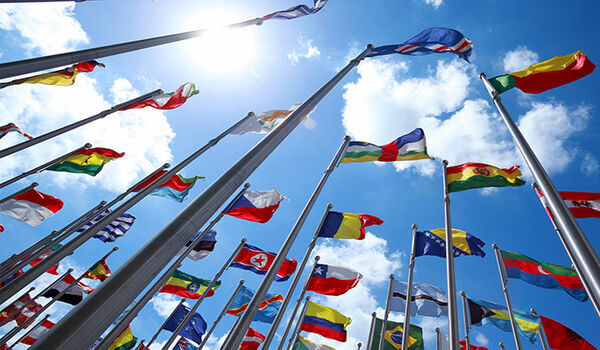Large scale migration has long been a key element of global economic development, from early movements out of Europe to the New World, to dislocation created by the World Wars, and recent migration to Europe from Africa following the Arab Spring. Furthermore, recent conflicts in Syria and Ukraine have placed forced migration in sharp focus, with receiving countries developing approaches to manage and absorb new waves of migrants.
Today, people are moving across international borders more than ever before. The United Nations estimates that there are now around 258 million international migrants, and that this has grown from 173 million at the turn of the millennium. Global migration has lifted millions out of poverty and boosted economic growth, with people often moving in search of new opportunities unavailable to them at home. Migrants can triple their wages after moving to a new country, which has helped millions of individuals and their relatives at home escape poverty.
Receiving countries gain the skills and talents of new migrants. Developed countries with welcoming immigration policies gain the most: the USA, UK, Canada and Australia are home to almost two-thirds of migrants with university level education, while the USA has 85% of all immigrant Nobel Science prize winners. At lower levels of skills and qualifications countries benefit, with migrants filling critical roles in industries such as healthcare, construction and agriculture.
Yet not all migration is in search of new opportunities. People also move to escape conflict, poverty and persecution. The UNHCR (UN Refugee Agency) estimates that around the world 66 million have been forcibly displaced. This amplifies the challenges of integration. Often those displaced by conflict have had to move quickly, leaving behind homes, jobs, as well as sometimes family and friends. Thus settling and finding opportunities upon arrival in the host country can be very difficult.
My recent research has examined forced migration, focusing on migrants who have moved as a result of war and later return to their homeland. As with much academic research on entrepreneurship, previous studies have tended to focus on fast-growing dynamic economies. For example, research has focused on India and China, where large waves of migrants are returning due to the new and expanding opportunities at home. Yet there is value in extending understanding of different, more complex, contexts.
In a recent paper I set out how policies to attract the diaspora home have become increasingly common, especially among countries who have experienced economic adversity. For countries that have experienced conflict, attracting the diaspora home can offer gains in terms of international experience, technical knowhow and entrepreneurial skills. In this, the research differs from existing studies on fast-growing economies. In these economies, opportunities are expanding as individuals are returning to exploit these. However, in post-conflict economies the institutional environment is often complex and unstable with turbulent rules and regulations. This can mean that entrepreneurial opportunities are constrained and there are significant challenges associated with being an entrepreneur due to the uncertainty associated with unstable environments.
Individuals can also compare the relative stability of their host country with the complexity they face in the homeland, and will often determine that entrepreneurial opportunities are superior in the country they have moved to. And yet despite the challenges associated with instability in their homeland people still return.
So what attracts these returnees? In a forthcoming book (to be published by Oxford University Press later in 2019) I demonstrate how returnee entrepreneurs go home to invest due to an emotional connection. The research demonstrates that returnee entrepreneurs are not necessarily profit-maximising individuals, as entrepreneurship research has tended to emphasise. Instead, they are concerned with higher level needs such as self-actualisation, social contribution, loyalty and generosity.
The problems of the past mean that they want to contribute to economic and social development in the homeland and gain a sense of pride in doing so. They also act to assist family and friends, creating opportunities which support them in employment. These strong ties at home mean that they can overcome the liability of foreignness often associated with transnational entrepreneurship.
The emotional connection creates opportunities and challenges for policy makers. Emotional attachment creates an opportunity for bringing people home. However, the business environments at home are problematic and individuals often lack trust in government.
As part of my research I have been working with a number of governments in developing policies which attract the diaspora home. There has been some progress in terms of communicating more effectively with the diaspora; however further progress needs to be made to ensure that trust can be secured between governments and those who have moved away. As part of this, policy makers need better mechanisms and more will to tackle challenges associated with the institutional environment at home, such as corruption. In doing so, perceptions of doing business in the homeland and trust in government can improve.


